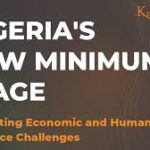Rivers politics continues to tilt sharply in Wike’s favour as loyalists of suspended Governor Sim Fubara shunned the local government elections, signalling discomfort at the FCT Minister’s total takeover. With control of the Assembly, grassroots councils, and key state agencies, Wike now dominates Rivers ahead of Fubara’s return in September.
The political crisis in Rivers State took a dramatic turn at the weekend as loyalists of suspended Governor Siminalayi Fubara boycotted the local government elections, paving the way for the Federal Capital Territory (FCT) Minister, Nyesom Wike, to reassert his dominance over the grassroots structure of the state.
The polls, conducted across the 23 local government areas by the Rivers State Independent Electoral Commission (RSIE, marked the first major test of strength since the Supreme Court nullified the controversial October 2024 council election organized under Fubara’s watch. That election, which saw candidates loyal to the governor sweep nearly all positions on the platform of the Action Peoples Party (APP), was quashed earlier this year by a unanimous judgment delivered by Justice Jamilu Tukur, who ruled that RSIEC acted illegally without first updating the voter register.
With the court’s decision clearing the ground for fresh polls, Wike moved swiftly, rallying his allies and ensuring their return to the grassroots political structure.
Fubara’s Camp Boycotts
In a move that stunned many observers, Fubara and his closest allies—including Chief of Staff Edison Ehie, Secretary to the State Government Dr. Tammy Danagogo, and other loyalists—were conspicuously absent from their polling units during the election. The 23 former council chairmen who owed their seats to Fubara’s annulled 2024 election also shunned the exercise.
The boycott, according to insiders, was a silent protest and an open admission that the election had already been decided in Wike’s favour. A staunch Fubara loyalist who spoke under anonymity said:
“We knew the winners before the election started. Why waste time voting? Wike has taken everything, and this is part of the deal signed with the President. The governor himself is not even in the country.”
This calculated absence by Fubara’s camp highlights the deep discomfort within his ranks over what many perceive as Wike’s total takeover of the Rivers political space, even before the governor’s expected return to office when emergency rule ends on September 18.
Fubara’s Silence
Remarkably, Governor Fubara has remained mute throughout the season of local government elections. Despite the gravity of the polls, which ordinarily should define the grassroots base of any sitting governor, Fubara has neither addressed Rivers people nor commented on the outcome.
Analysts believe his silence is telling—an indication that the peace pact brokered by President Bola Ahmed Tinubu in March has effectively clipped his wings, forcing him into a posture of reluctant acceptance.
Recall that Tinubu declared a state of emergency in Rivers in March, suspending Fubara, his deputy Ngozi Odu, and the State House of Assembly. The intervention was aimed at restoring stability after months of violent political confrontation between Wike and his successor. But the fallout has left Fubara politically weakened, while Wike has emerged stronger.
Wike Tightens His Grip
The weekend election appears to be the final piece of Wike’s consolidation puzzle. In recent months, his loyalists have defected en masse to the All Progressives Congress (APC) under the Tony Okocha-led faction, picking up tickets to contest the RSIEC polls. Others remained in the PDP, especially in strongholds like Obio-Akpor, Port Harcourt, and Ogba-Egbema-Ndoni.
With his allies contesting under both major platforms, Wike effectively ensured a no-lose situation.
Beyond the council polls, Wike already has the **Rivers House of Assembly firmly under his control**, alongside several strategic boards and agencies where his loyalists occupy key positions. By the time the emergency rule lapses in September, the FCT Minister would already have entrenched himself across every layer of governance in River **from the state legislature to local governments, and vital institutions of state administration**.
## Low Turnout, Growing Disillusionment
Across Rivers, Saturday’s election was marked by widespread voter apathy. In several polling units, including Ward 17 Unit 054 in Obio-Akpor, there were no voters present by midday. Reports of ballot stuffing and pre-filled result sheets further undermined confidence in the process.
A Port Harcourt resident, Grace Agba, captured the mood of disillusionment:
> “Why waste time voting when they already know the winners? The agreement has been signed; Wike’s men are taking over. This is not an election—it is selection.”
## What Next for Rivers?
The outcome of the local government elections leaves little doubt that Wike has regained his grip on Rivers politics, restoring the grassroots machinery he lost in last year’s disputed exercise. Fubara, sidelined and silent, appears boxed into a corner where his options are limited.
As the countdown to the end of emergency rule in September begins, the big question is whether Fubara will return to the Government House with any meaningful influence—or if Rivers has now effectively become **Wike’s political fiefdom** ahead of the 2027 general elections.


